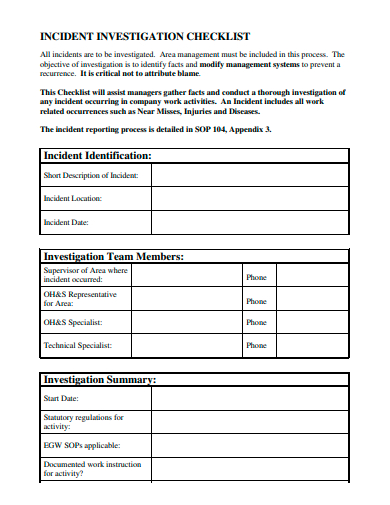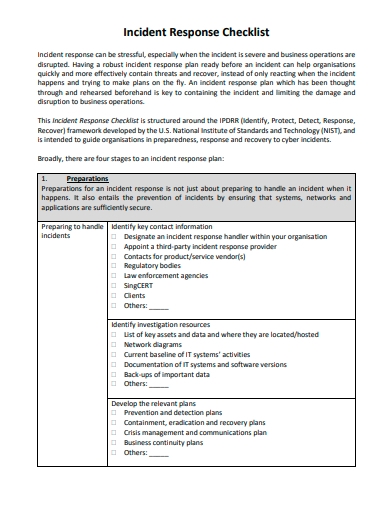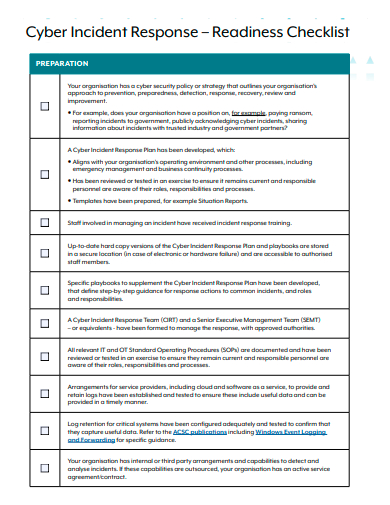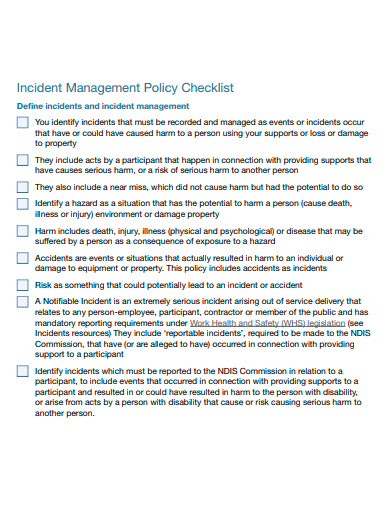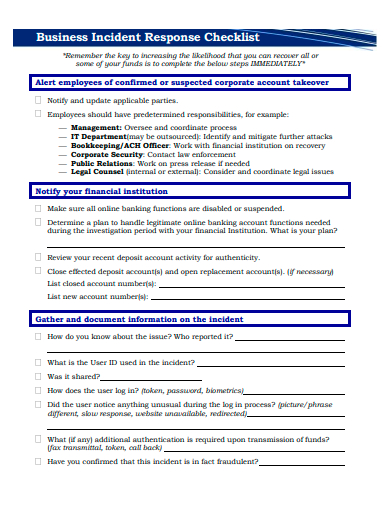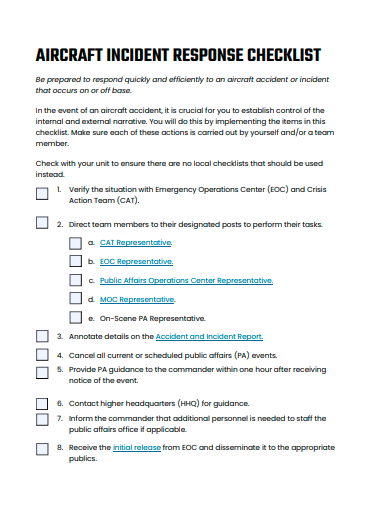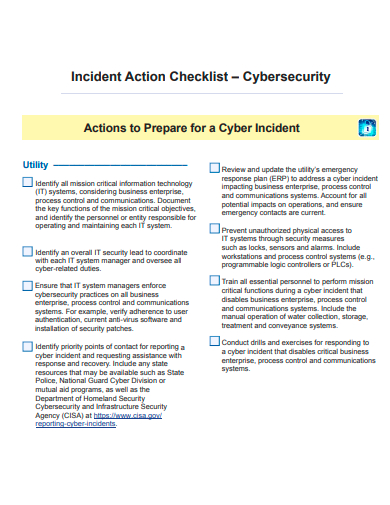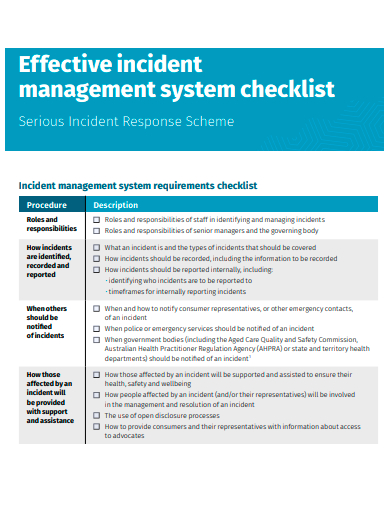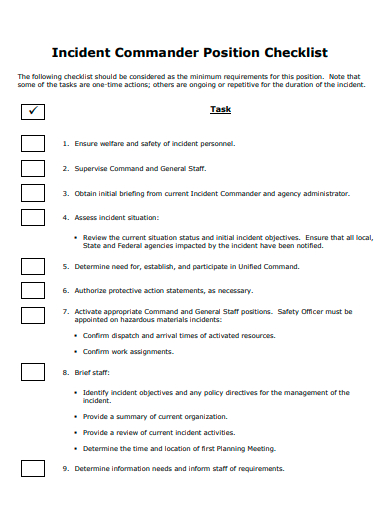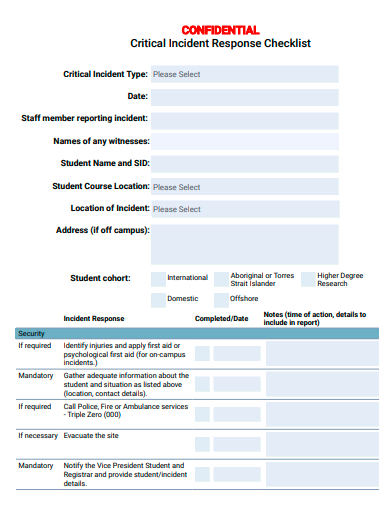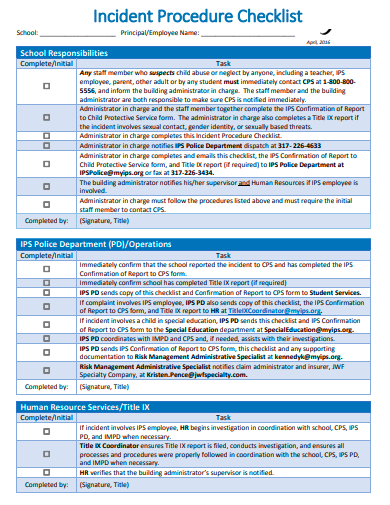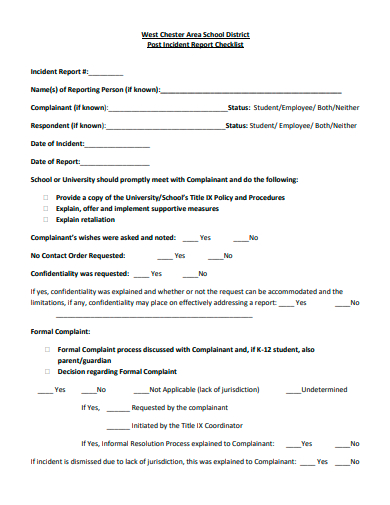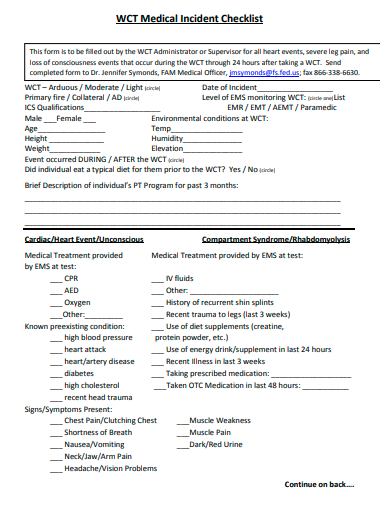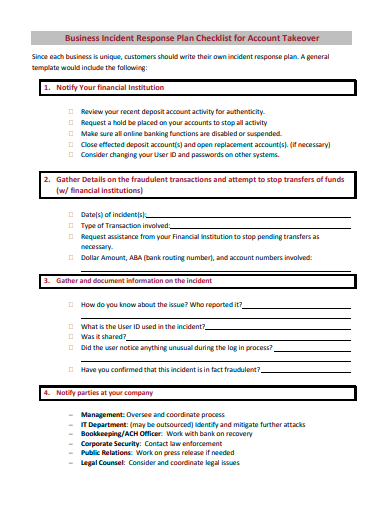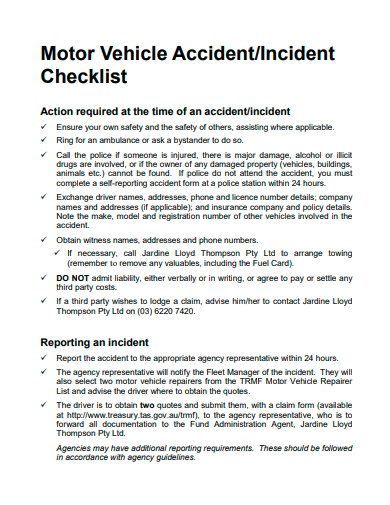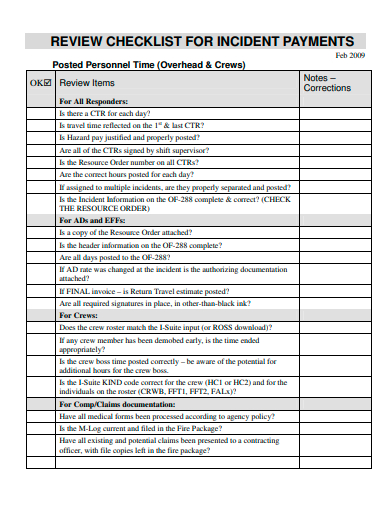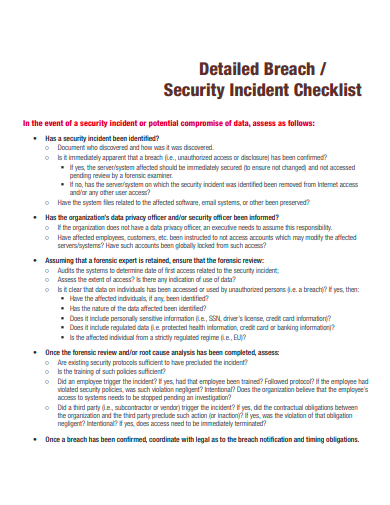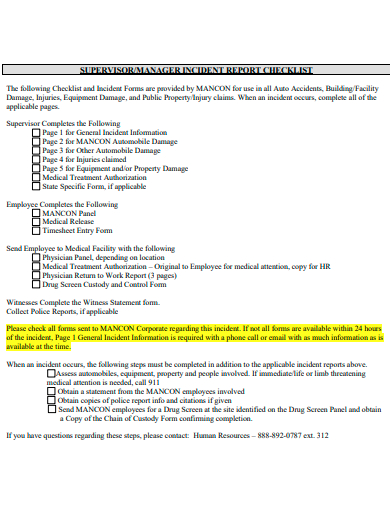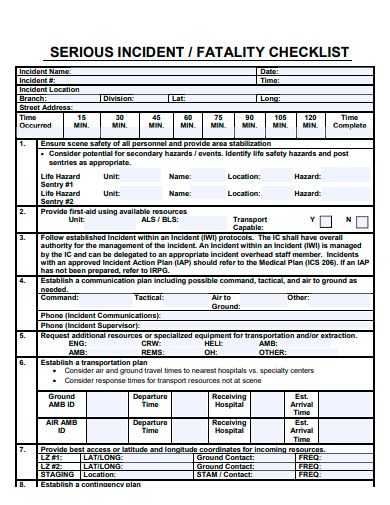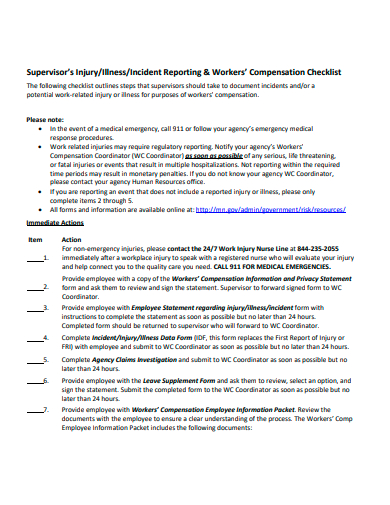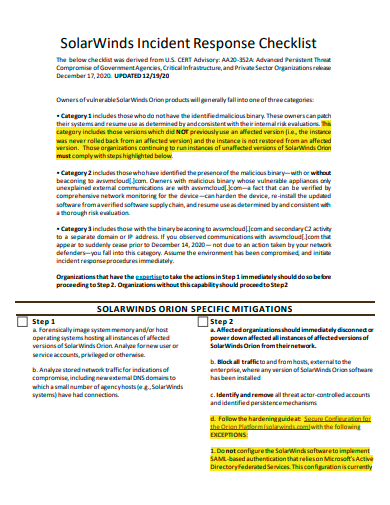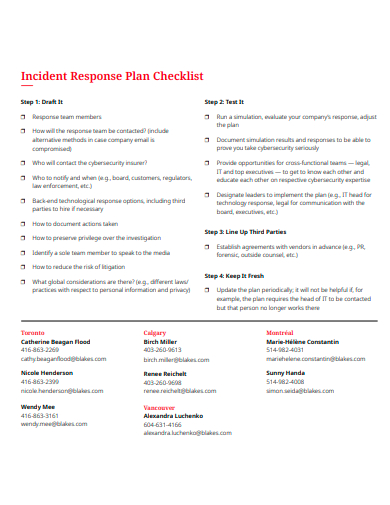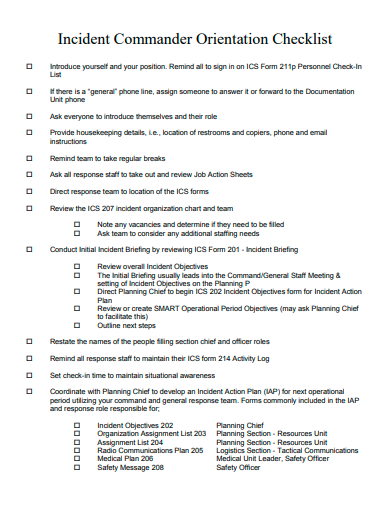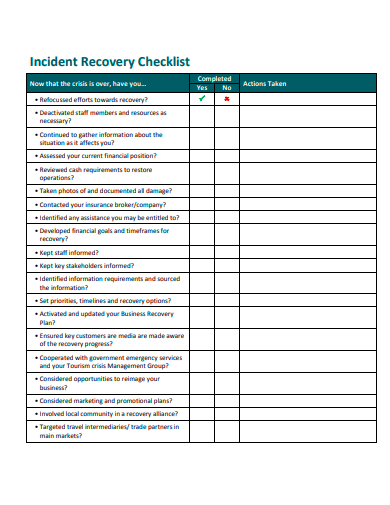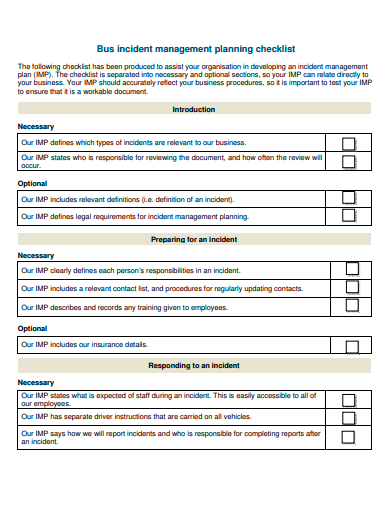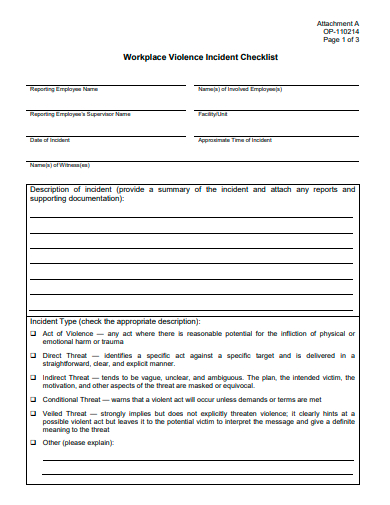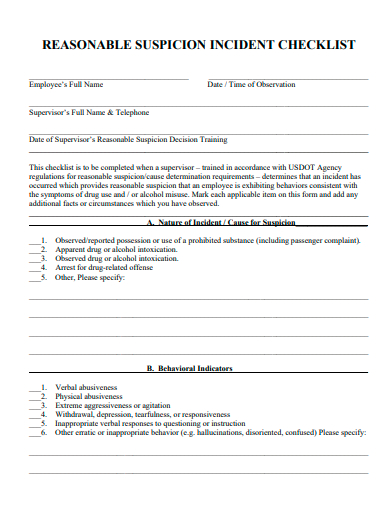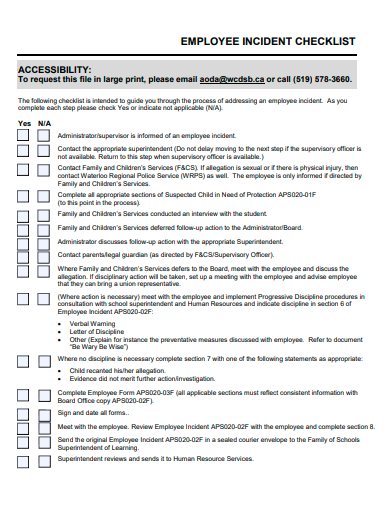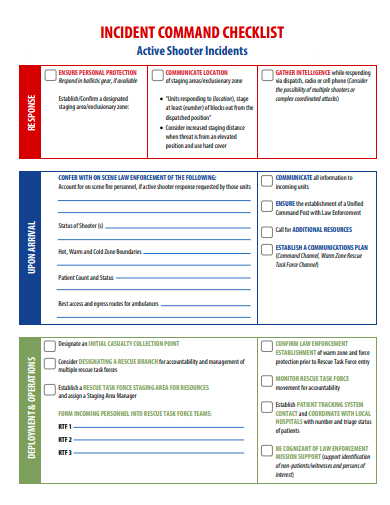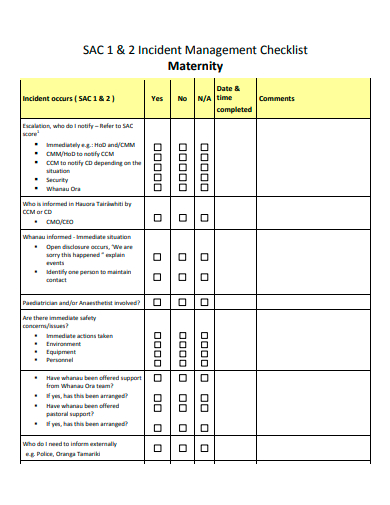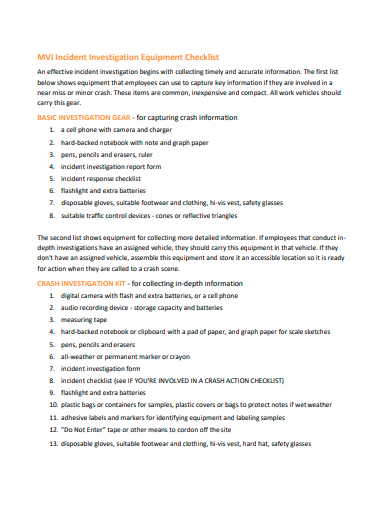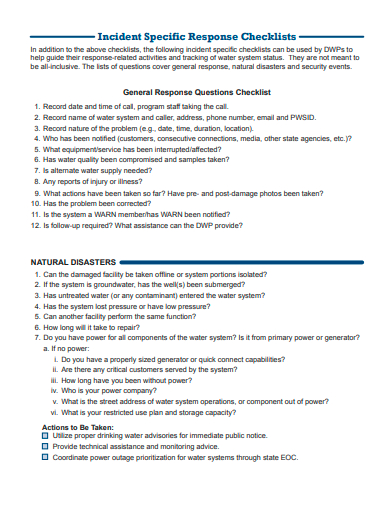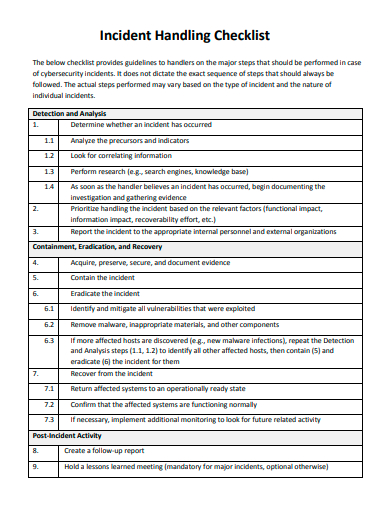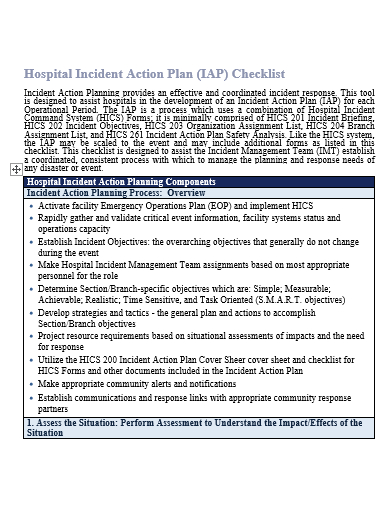Incidents are an unfortunate reality in various domains, ranging from emergency situations and natural disasters to cybersecurity breaches and workplace accidents. When such incidents occur, a well-structured and comprehensive incident checklist plays a crucial role in ensuring effective incident management. An incident checklist is a systematic tool that outlines the necessary steps, procedures, and resources required to handle incidents promptly and efficiently. Incidents can disrupt normal business operations, resulting in downtime, financial losses, and customer dissatisfaction. An incident checklist provides a structured approach, ensuring that all necessary steps are taken promptly. It outlines the immediate actions to be performed, such as notifying relevant personnel, securing critical assets, and implementing backup systems. By following a well-defined checklist, businesses can respond swiftly to incidents, minimize downtime, and mitigate potential damages.
33+ Incident Checklist Samples
1. Incident Investigation Checklist Template
2. Incident Response Checklist Template
3. Cyber Incident Response Checklist Template
4. Incident Management Policy Checklist Template
5. Business Incident Response Checklist Template
6. Aircraft Incident Response Checklist Template
7. Incident Action Checklist Template
8. Effective Incident Management System Checklist Template
9. Incident Commander Position Checklist Template
10. Critical Incident Response Checklist Template
11. Incident Procedure Checklist Template
12. Post Incident Report Checklist Template
13. Medical Incident Checklist Template
14. Business Incident Response Plan Checklist Template
15. Motor Vehicle Incident Checklist Template
16. Incident Payments Review Checklist Template
17. Security Incident Checklist Template
18. Manager Incident Report Checklist Template
19. Serious Incident Checklist Template
20. Incident Checklist Example
21. SolarWinds Incident Response Checklist Template
22. Incident Response Plan Checklist Template
23. Incident Commander Orientation Checklist Template
24. Incident Recovery Checklist Template
25. Bus Incident Management Planning Checklist Template
26. Workplace Violence Incident Checklist Template
27. Reasonable Suspicion Incident Checklist Template
28. Employee Incident Checklist Template
29. Incident Command Checklist Template
30. Incident Management Checklist Template
31. Incident Investigation Equipment Checklist Template
32. Incident Specific Response Checklist Template
33. Incident Handling Checklist Template
34. Hospital Incident Action Plan Checklist Template
What is Incident Checklist?
An incident checklist is a systematic and organized document that outlines the essential steps, procedures, and resources to be followed during the response and management of an incident. It serves as a reference tool to guide individuals involved in incident response, ensuring that critical actions are taken promptly and consistently. Incident checklists are designed to provide a structured approach and help mitigate risks, minimize damage, and facilitate effective incident resolution.
How To Make Incident Checklist?
Creating an incident checklist requires careful consideration of the specific needs and potential risks within your business or industry. Here are some steps to help you develop an effective incident checklist:
Step 1- Identify Potential Incidents
Start by identifying the types of incidents that are relevant to your business. Consider both internal and external incidents that may disrupt your operations, compromise security, or pose risks to employees or customers. This could include events such as cybersecurity breaches, natural disasters, workplace accidents, power outages, or system failures.
Step 2- Assess Risks and Impact
Evaluate the potential risks associated with each identified incident. Consider the likelihood of occurrence and the potential impact on your business, including financial, operational, reputational, and safety aspects. Prioritize incidents based on their severity and likelihood of occurrence to allocate appropriate resources.
Step 3- Define Incident Response Steps
For each identified incident, define the necessary steps to be taken during the response phase. Break down the response process into clear and actionable tasks. Consider the order in which these tasks need to be completed and any dependencies or prerequisites. Ensure that the steps are specific, measurable, achievable, relevant, and time-bound (SMART).
Step 4- Assign Roles and Responsibilities
Determine the key personnel responsible for carrying out each task in the incident response process. Clearly define their roles and responsibilities, ensuring that there is no ambiguity about who is accountable for each action. Assign backup personnel in case the primary individuals are unavailable during an incident.
Why is an incident checklist important?
An incident checklist is important because it provides a structured approach to incident management. It helps ensure consistency in response procedures, minimizes the risk of overlooking critical tasks, facilitates effective communication and coordination, and promotes efficient resource utilization.
How often should an incident checklist be updated?
An incident checklist should be regularly reviewed and updated to reflect changes in the business environment, industry regulations, best practices, and lessons learned from real incidents. It is important to keep the checklist relevant and up-to-date to ensure its effectiveness during incident response.
Who should have access to the incident checklist?
The incident checklist should be accessible to all individuals involved in incident response, including relevant personnel, management, and stakeholders.
In conclusion, incident checklists are indispensable tools in effective incident management. They provide a structured approach, ensuring a streamlined response, consistency, and comprehensive coverage. By facilitating efficient resource utilization and promoting accurate documentation, checklists contribute to timely incident resolution and enable subsequent analysis and improvement. Incorporating incident checklists as a standard practice within organizations across various domains will enhance overall incident response capabilities, leading to more effective incident management and reduced impact on people, property, and operations.
Related Posts
FREE 18+ Complaint Checklist Samples in MS Word | Google Sheets | PDF
FREE 18+ Internship Checklist Samples in MS Word | Google Docs | PDF
FREE 18+ Statement Checklist Samples in MS Word | Google Sheets | PDF
FREE 20+ Voluntary Checklist Samples in MS Word | Google Sheets | PDF
FREE 18+ Summary Checklist Samples in MS Word | Google Sheets | PDF
FREE 14+ Sponsorship Checklist Samples in MS Word | MS Excel | PDF
FREE 18+ Conference Checklist Samples in MS Word | Google Sheets | PDF
FREE 17+ Lesson Checklist Samples in MS Word | Google Sheets | PDF
FREE 18+ Progress Checklist Samples in MS Word | Google Docs | PDF
FREE 18+ Enrollment Checklist Samples in MS Word | Google Docs | PDF
FREE 18+ Graduation Checklist Samples in MS Word | Google Sheets | PDF
FREE 15+ Consent Checklist Samples in MS Word | Google Sheets | PDF
FREE 18+ Review Checklist Samples in MS Word | Apple Pages | PDF
FREE 18+ Submission Checklist Samples in MS Word | Google Docs | PDF
FREE 18+ Request Checklist Samples in MS Word | MS Excel | PDF

